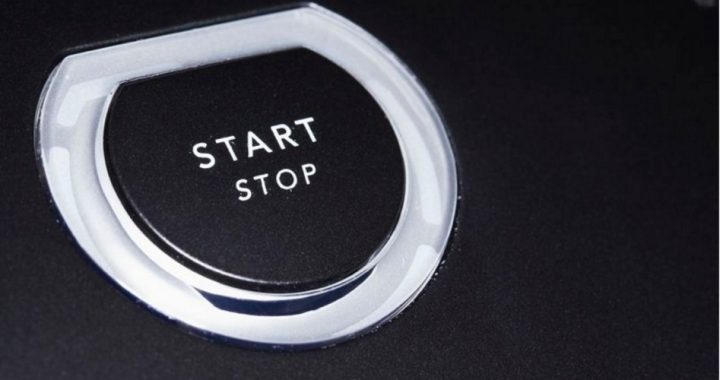
With the reconvening of Congress this week, pressure on politicians to restart the Export-Import Bank is predictably coming from the usual suspects: large corporations who have enjoyed the U.S. taxpayer guarantees that have reduced their own costs and risks of doing business overseas. Without those taxpayer subsidies, they’ve been forced to adjust to the realities of the marketplace, and they don’t like it.
Boeing officials are lamenting that the Ex-Im Bank is no longer insuring loans to its customers who can’t find regular financing on their own:
Due to congressional inaction on Ex-Im reauthorization, Boeing is operating at a significant disadvantage in overseas campaigns against foreign aerospace companies that are supported by their governments’ [own] export credit agencies.
There are at least two things wrong with Boeing’s plaint: As the world’s second-largest defense contractor, with annual revenues topping $90 billion, it could certainly afford to finance its foreign customers’ purchases without the help of the U.S. taxpayer. But simple math and political reality give the company the opportunity to foist them onto the Ex-Im Bank, thus freeing itself from assuming the risks that private banks aren’t willing to take, while taking advantage of below-market interest rates in the process.
The other problem is the “rat poison” analogy: Since everyone else is doing it, we should too. Just because a neighbor is ingesting rat poison doesn’t mean it makes sense for you to do so.
That the Ex-Im Bank has been supporting companies that otherwise wouldn’t exist is another reason to ask why: Why should the taxpayer be extending credit to companies that otherwise couldn’t make it in the marketplace?
Tyler Schroeder, a financial analyst at the small Texas-based company Air Tractor (which makes firefighting and agricultural aircraft), said that since the end of June,
We’re scrambling now, trying to find a way to facilitate our sales throughout the rest of the year. That’s going to take a lot of risk on our part … [and] it’s going to be a big expense for us.
Translation: While Ex-Im was still operational, Air Tractor was only too happy to shift the risk of doing business with high-credit-risk companies onto the American taxpayer, and save the excessive costs of doing business with them that the free market would otherwise levy through higher interest rates. Now Air Tractor is going to have to go it alone.
Another example of milking the Ex-Im Bank is provided by Oscar Ramirez, the president of a company providing products to the energy industry:
We find the Ex-Im Bank very useful. The commercial banks will not lend us $1.7 million without the Ex-Im loan guarantee, and without the line of credit we would not be in business.
All [our] receivables are foreign and no commercial bank will lend against those receivables. We export tanks, dispensers and signage for gas stations in Latin America, the Caribbean and Africa. We employ 35 people, but [we] couldn’t do it without the Bank.
Translation: Ramirez wouldn’t be in business without the tacit assistance of the U.S. taxpayer! Nothing was mentioned about the disadvantage in which this places his competition, or the costs to the U.S. taxpayer when one of his customers goes belly up and defaults on an Ex-Im-guaranteed loan.
Like Solyndra: Ex-Im provided $10 million to this pipe-dream solar panel maker — a company that never made economic sense from the beginning, and, except for political expediency, never would have seen the light of day.
Representative Jeb Hensarling (R-Texas), chairman of the House Financial Services Committee and long-time opponent of the bank, gets it:
It’s surprising that Boeing is [threatening layoffs due to the bank’s closure] when it is reporting increased sales, record-breaking revenue and a backlog of orders that will take seven years to clear.
While there’s no doubt some U.S. companies receive a benefit from Ex-Im, there’s no doubt Ex-Im hurts other companies and their workers.
Where is the fairness in giving Washington politicians the power to pick who gets helped and who gets hurt?
Missing from the conversation entirely is any mention of constraints placed on such actions by the Constitution. When the First Bank of the United States was chartered in 1791, Congressman James Madison led the opposition to it, claiming that such a move was “condemned by the silence of the Constitution,” that chartering a national bank was nowhere to be found among the enumerated powers and thus was outside the authority of Congress. As Laurence Vance, a scholar with the Ludwig von Mises Institute, explained:
The Export-Import Bank should not be reauthorized, but not because of anything to do with crony capitalism, corporate welfare, corporatism, subsidies, waste, fraud, inefficiency, corruption, defaults, mismanagement, or cost.
The Import-Export Bank should not be reauthorized because it is an unconstitutional and illegitimate function of the U.S. government to have a bank, finance exports, level the playing field for exporters, fill gaps in trade financing, help small businesses, increase exports, help to maintain and create jobs, match the financing that other governments provide, assume credit risks, or provide credit insurance, loan guarantees, or direct loans.
American businesses that wish to sell their products in overseas markets should bear all the risks in doing do, not American taxpayers.… There is no constitutional authority for the U.S. government to have a bank of any kind.
A Congress filled with enough statesmen who take their oaths of office seriously would not only not renew the Ex-Im Bank, but it would demand that the bank sell its current portfolio of loans to private lenders and go out of business altogether.
As it is, the Ex-Im Bank is a zombie, ever threatening to be resurrected as the great geyser of crony capitalism for the primary benefit of Boeing, General Electric, and others close to the center of power in Washington.
A graduate of an Ivy League school and a former investment advisor, Bob is a regular contributor to The New American magazine and blogs frequently at www.LightFromTheRight.com, primarily on economics and politics.



